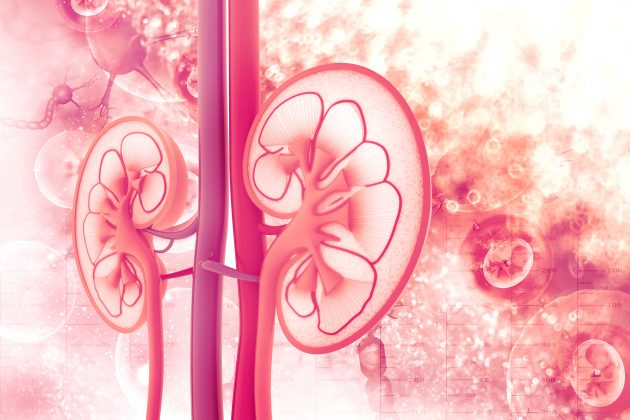
Kidney Week 2020
Patients with metabolic acidosis may develop wide-ranging complications consistent with the fact that many critical cell functions require physiologic pH. However, according to Navdeep Tangri, MD, PhD, FRCP, and colleagues, there are few data available on the extent to which metabolic acidosis is associated with mortality in patients with chronic kidney disease (CKD). The researchers conducted an analysis of a de-identified Electronic Health Records dataset (Optum®) from 2007 to 2017. Results of the analysis were reported during a virtual poster session at ASN Kidney Week 2020 in a poster titled Metabolic Acidosis Is a Predictive Factor for All-Cause Mortality in Patients with CKD.
The dataset was utilized to identify patients with non-dialysis-dependent CKD stages 3-5 with two or more consistent serum bicarbonate tests 28 to 365 days apart, three or more estimated glomerular filtration rate (eGFR) values <60 mL/min/1.73 m2, and two or more years of post-index data, or mortality during the study period. Patients were stratified into two groups based on baseline serum bicarbonate level: (1) metabolic acidosis, serum bicarbonate 12 to 22 mEq/L or (2) normal serum bicarbonate, 22 to 29 mEq/L.
All-cause mortality was measured at 2 years in patients with metabolic acidosis versus normal serum bicarbonate at baseline. Logistic regression models were used to assess the impact of baseline serum bicarbonate on 2-year mortality, adjusted for age, sex, race, diabetes, hypertension, heart failure, Charlson Comorbidity Index score, baseline eGFR, and log albumin-to-creatinine ratio (ACR).
The analysis included 51,558 patients; of those, 17,350 had metabolic acidosis and 34,208 had normal serum bicarbonate at baseline. The unadjusted rates of mortality within 2 years were higher in the metabolic acidosis group than in the normal serum bicarbonate group (30.9% vs 10.2%, respectively; P<.0001) and within all stages of CKD (P<.001). There was an independent association between each 1 mEq/L lower serum bicarbonate value and a 15% higher risk of all-cause mortality (odds ratio, 0.853; 95% confidence interval, 0.846-0.861). Findings were consistent in subgroup and sensitivity analyses.
“The presence of metabolic acidosis was associated with a high 2-year risk of all-cause death in patients with CKD. This finding was independent of age, sex, race, pre-existing comorbidities, and baseline eGFR and ACR,” the researchers said.
Source: Tangri N, Reaven NL, Funk SE, Mathur VS. Metabolic acidosis is a predictive factor for all-cause mortality in patients with CKD. Abstract of a poster presented at the American Society of Nephrology virtual Kidney Week 2020 (PO1483), October 22, 2020.
Funding for this poster was provided by Tricida, Inc.
Credit: Original article published here.








